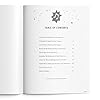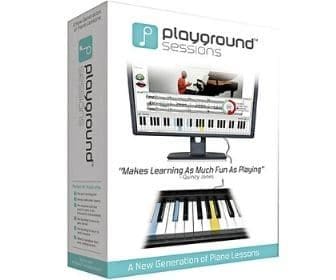Table of Contents
Introduction to Practicing Piano for Performance
Perfecting piano performance requires not only regular practice but also a strategic approach tailored to personal growth and mastery of musical pieces. Whether you are preparing for a recital, competition, or personal enjoyment, understanding how to practice effectively is essential. This introduction explores the foundational strategies for effective piano practice, emphasizing techniques that enhance both technical skills and artistic expression.
Building Confidence with Mock Performances
One effective way to build confidence for piano performances is through mock performances. These simulated concerts provide a safe environment where musicians can experience the pressure of playing in front of an audience, leading to better preparedness and reduced performance anxiety.
PlayTime Piano: Disney - Level 1 | Beginner Piano Method | Sheet Music with Easy Disney Songs for Young Pianists | Fun Piano Songbook for Practice and Performance | Faber Piano Book for Kids
7% OffHow to Practice the Piano
$3.99 (as of January 24, 2026 23:13 GMT -08:00 - More infoProduct prices and availability are accurate as of the date/time indicated and are subject to change. Any price and availability information displayed on [relevant Amazon Site(s), as applicable] at the time of purchase will apply to the purchase of this product.)How to Read Bass Clef on the Piano | Left Hand Piano Reading Workbook for Beginners and Music Students | Bass Staff Note Reading Guide and Piano Instruction Book for Sightreading Practice
GP40 - How to Teach Piano Successfully - Bastien
$39.95 (as of January 24, 2026 23:13 GMT -08:00 - More infoProduct prices and availability are accurate as of the date/time indicated and are subject to change. Any price and availability information displayed on [relevant Amazon Site(s), as applicable] at the time of purchase will apply to the purchase of this product.)Organize Regular Mock Concerts: Schedule regular mock concerts throughout your preparation period. These should mimic the actual performance conditions as closely as possible, including the concert dress, announcing your pieces, and even bowing to an imaginary audience. This regularity helps normalize the performance experience, making it less daunting on the actual day.
Invite Friends and Family: Involve friends and family in your mock performances. Their presence can simulate the pressure and scrutiny of a live audience, helping you to adapt to playing under observation. Feedback from these familiar faces can also be invaluable, providing both encouragement and constructive criticism.
Record Your Performances: Use a video recorder during your mock performances. Watching yourself play can highlight areas for improvement and help you monitor your progress over time. Additionally, becoming comfortable with being recorded is beneficial, as many performances and competitions now include a recording element.
Simulate Different Venues: If possible, arrange mock performances in various locations. Each venue can offer different acoustics and atmospheres, from a small room to a larger hall. Adapting to these differences can enhance your ability to adjust to new environments quickly during actual performances.
Ready for Theory Prep A Piano Review Book (Ready for Theory Piano Review Books)
$10.95 (as of January 24, 2026 21:03 GMT -08:00 - More infoProduct prices and availability are accurate as of the date/time indicated and are subject to change. Any price and availability information displayed on [relevant Amazon Site(s), as applicable] at the time of purchase will apply to the purchase of this product.)The Piano Proficiency Exam Review Book
22% OffPiano Adventures - Level 2A Lesson Book
$6.99 (as of January 24, 2026 21:06 GMT -08:00 - More infoProduct prices and availability are accurate as of the date/time indicated and are subject to change. Any price and availability information displayed on [relevant Amazon Site(s), as applicable] at the time of purchase will apply to the purchase of this product.)Final Exam Review (Piano Collection)
$1.29 (as of January 24, 2026 23:10 GMT -08:00 - More infoProduct prices and availability are accurate as of the date/time indicated and are subject to change. Any price and availability information displayed on [relevant Amazon Site(s), as applicable] at the time of purchase will apply to the purchase of this product.)Include Unexpected Distractions: To further prepare for the unpredictability of live performances, introduce potential distractions during your mock performances. This could include background noise, interruptions, or minor technical issues. Learning to maintain composure in the face of such challenges will boost your resilience and focus during formal events.
How to Manage Performance Anxiety
Performance anxiety, or stage fright, is common among pianists at all levels. Managing this anxiety effectively can significantly enhance your performance quality. Here are structured methods to help control and reduce performance anxiety:
Preparation and Practice
Comprehensive preparation is the foundation for managing performance anxiety. Familiarity with your piece will boost your confidence. Allocate time for focused practice, which includes slow practice, hands-separate sessions, and memorization. Additionally, simulate performance conditions during practice to get accustomed to the setting and pressure.
Mental Visualization
Visualize success before stepping onto the stage. Imagine yourself performing with precision and receiving positive feedback. This method not only prepares your mind for the performance but also instills a sense of confidence.
Breathing Exercises
Breathing exercises can be very effective in controlling nerves. Practice deep, slow breathing to calm your mind and body. Techniques such as the 4-7-8 breathing method, where you breathe in for 4 seconds, hold for 7 seconds, and exhale for 8 seconds, can help reduce anxiety significantly.
Performance Practice
Perform before small, friendly audiences before the main event to work through your nerves. Whether it’s family, friends, or fellow musicians, getting used to playing in front of others can alleviate much of the fear associated with performing in front of a large audience.
Physical Exercise
Engaging in regular physical exercise can help manage stress levels, thus reducing feelings of anxiety. Activities like yoga, jogging, or even brisk walking can improve your overall well-being and help clear your mind, leading to less anxiety before performances.
Professional Help
If performance anxiety is significantly impacting your ability to perform, consider seeking help from a mental health professional. Techniques like Cognitive Behavioral Therapy (CBT) can be exceptionally beneficial in managing anxiety.
Focus on the Music
During the performance, shift your focus from your anxieties to the joy and emotion of the music itself. Enjoy the process of sharing your music with the audience. Remember, most audiences are supportive, and they’re there to enjoy your performance.
Tips for Memorizing Music for Recitals
Practicing Performance Etiquette
Simulate Performance Conditions: During practice sessions, simulate the actual performance conditions as closely as possible. This includes playing through the entire piece without stopping, even when mistakes occur. Try to use the same piano and sitting arrangement if possible, and consider dressing in your performance attire to adapt to how you will feel during the actual event.
Use of Recording Equipment: Record your practice sessions to critique your performances objectively. Listening to recordings can highlight areas that need improvement and build awareness of how you sound to an audience. This also helps in getting used to performing while being recorded, which is common in many professional settings.
Practice Performing Regularly: Set up regular mock performances. Invite friends, family, or fellow musicians to listen to your performances. This not only helps in getting useful feedback but also gradually reduces performance anxiety.
Mental Preparation: Implement visualization and breathing exercises into your practice routine. Visualize successful performances and use deep breathing to regulate nerves. This mental rehearsal is crucial in preparing for the emotional and psychological aspects of a live performance.
Avoid Over-Practicing: Rest is just as important as practice. Over-practicing, especially right before a performance, can lead to exhaustion and injuries. Ensure there is enough rest and possibly even a light practice day before the performance day to avoid burnout.
Addressing Mistakes During Practice: Instead of stopping immediately to correct mistakes, continue playing through errors during your practice as you would ideally do during a live performance. Note the mistake and return to it later for focused correction. This approach helps in maintaining the flow of the performance and building confidence in recovery strategies.
Time Management: Manage your practice time efficiently. Begin with warm-ups, then move to sections of the music that need the most work, and finish with a complete run-through of your pieces. Keeping a practice log can also help in planning and tracking progress.
Evaluate Your Performance Post Practice: After each practice session, take time to reflect on what went well and what didn’t. This self-assessment is crucial for continuous improvement and confidence building.
Preparing for Your First Public Performance
When you’re preparing for your first public piano performance, it’s not just about having the pieces memorized or playing them well at home. The dynamics of a live performance are quite different, and detailed preparation can set the stage for a successful showcase. Here’s how to make sure you’re fully prepared for the day.
Every performance space is unique. If possible, visit the venue well before your performance to familiarize yourself with its layout and acoustics. Practice using the piano you will perform on to understand its feel and response. Check out the seating arrangements, lighting, and even the background noise levels.
Conduct at least one ‘dress rehearsal’. Wear the outfit you intend to perform in to ensure there are no issues with comfort or mobility. Try to simulate the performance environment as much as possible, including starting at the same time the actual performance is scheduled for, to help you acclimatize.
Establish a pre-performance routine that helps to calm nerves. This might involve deep breathing exercises, a specific warm-up routine on the piano, or even meditation. Stick to a routine that focuses your mind and minimizes anxiety.
Use mental visualization techniques to walk through the entire performance in your mind, from walking onto the stage to taking a bow at the end. Visualize success and positive audience reactions to help build confidence and reduce performance anxiety.
Understand that mistakes may happen, and that’s perfectly normal. Plan in advance how to handle a slip-up on stage without letting it disrupt the flow of your performance. Pausing for a brief moment, maintaining your composure, and continuing from a comfortable spot is generally better than trying to correct visible mistakes.
Remember, the performance isn’t just about playing music; it’s also about connecting with an audience. Practice making brief eye contact if possible, acknowledging your audience with a smile or a nod, and of course, taking a bow. These small gestures make a significant impact on your presentation and audience engagement.
After your performance, spend some time reflecting on what went well and what could be improved for next time. This could involve reviewing a recording of your performance or simply jotting down thoughts and feelings you had during the show. Learning from every performance is key to growing as a public performer.
Conclusion
In conclusion, effective piano practice for performance involves a strategic and mindful approach that emphasizes quality over quantity. It’s crucial to set specific goals, maintain a regular practice schedule, and incorporate a variety of exercises that focus on technique, interpretation, and musicality. By simulating performance conditions and regularly reviewing your progress, you can enhance your confidence and stage presence. Ultimately, the integration of these practices will prepare you for successful and expressive performances.






















